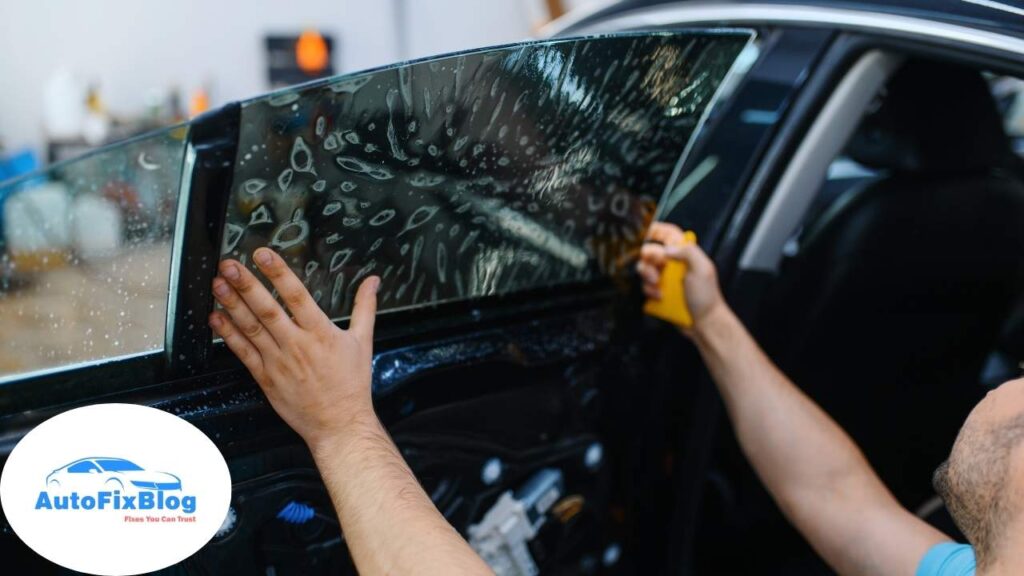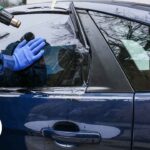Police vehicles are designed for functionality, safety, and efficiency. In North Carolina, as in many other states, the tinting on cop car windows serves a variety of purposes, including officer protection, equipment concealment, and privacy. If you’ve ever wondered, what tint do cop cars in North Carolina have, this article will explore the details, regulations, and reasons behind their window tint choices.
Understanding Window Tinting on Police Vehicles
Window tinting involves applying a film to car windows to reduce sunlight, glare, and heat. For police vehicles, tinting isn’t just about comfort—it’s about ensuring safety and enhancing operational effectiveness. Law enforcement agencies in North Carolina use specific tints to meet their unique needs while complying with state laws and guidelines.
North Carolina’s Window Tinting Laws
Before diving into what tint do cop cars in North Carolina have, it’s important to understand the state’s window tinting regulations. North Carolina law specifies:
- Windshield Tinting: Tint is allowed on the windshield only above the AS-1 line, typically the top few inches, and must not reflect excessively.
- Front Side Windows: Must allow at least 35% visible light transmission (VLT).
- Rear Side and Back Windows: Can have darker tints, with no minimum VLT specified for multipurpose vehicles.
These rules apply primarily to civilian vehicles, but police cars often operate under different guidelines for practical reasons.
Why Do Cop Cars Have Tinted Windows?
The window tinting on cop cars serves several key purposes:
- Officer Safety: Tinted windows make it harder for potential threats to see inside the vehicle, providing an added layer of protection.
- Equipment Concealment: Police vehicles are often equipped with sensitive technology and tools. Tinting helps conceal this equipment from public view.
- Privacy During Operations: During stakeouts or when transporting detainees, tinted windows ensure discretion.
- Temperature Regulation: In a state like North Carolina, where summers can be hot and humid, tinting helps keep the interior cool, reducing the strain on A/C systems.
These practical benefits make tinting a vital component of police vehicle design.
What Tint Do Cop Cars in North Carolina Have?
Law enforcement vehicles in North Carolina typically use darker tints than those allowed for civilian vehicles. Here’s why:
- Darker Tints for Privacy: Police cars often use tints with a VLT lower than the 35% required for civilian front windows. This ensures that individuals outside the car cannot easily see inside.
- Specialized Films: The tints on police vehicles often include advanced films that block UV rays, reduce glare, and enhance night visibility for officers.
- Custom Specifications: The specific tint used can vary depending on the department, but the primary goal is functionality rather than aesthetics.
Although these vehicles might not strictly follow the same rules as private cars, they are still subject to oversight to ensure public safety. This underscores the significance of understanding what tint do cop cars in North Carolina have and why.
How Does Tinting Impact Police Work?
Tinting plays an essential role in police operations by directly influencing their efficiency and safety:
- Enhanced Surveillance: For unmarked police cars, darker tints allow officers to observe activities without being easily noticed.
- Officer Comfort: A cooler, glare-free interior ensures that officers remain focused and comfortable, even during long shifts.
- Safety During Stops: Tints help shield officers from prying eyes or potential threats during traffic stops or other engagements.
Given the nature of their duties, it’s clear that police cars require tints that balance visibility, safety, and privacy.
Do Police Cars Follow Tinting Laws in North Carolina?
The short answer is no—police cars are often exempt from standard tinting laws. This exemption allows law enforcement to use darker tints for operational and safety reasons. While civilian vehicles must comply with the state’s 35% VLT rule for front windows, police vehicles are equipped with tints tailored to their specific needs.
This is why the question what tint do cop cars in North Carolina have has a nuanced answer: it depends on the department’s requirements and operational protocols.
Tinting in Unmarked Police Cars
Unmarked police vehicles are an essential part of law enforcement strategies, especially for undercover operations. These cars often have darker tints to maintain anonymity and allow officers to monitor suspicious activities without drawing attention. The tints used on unmarked vehicles may differ significantly from those on standard patrol cars, emphasizing privacy and discretion.
What to Consider About Police Tints as a Civilian
Understanding what tint do cop cars in North Carolina have can also help civilians:
- Interactions with Police Vehicles: Recognizing a heavily tinted car as a potential unmarked police vehicle might encourage caution and compliance during road interactions.
- Compliance with Laws: While police cars may have exemptions, civilian vehicles must adhere to tinting laws to avoid fines.
- Choosing Tints for Your Vehicle: For civilians inspired by police tints, it’s essential to select legal tints that still offer protection and style.
The Future of Police Vehicle Tinting
As technology evolves, so do the materials and methods used for tinting police vehicles. Innovations like smart tinting, which adjusts opacity based on lighting conditions, could become more prevalent. This would enhance both functionality and adaptability, ensuring law enforcement agencies remain effective in diverse situations.
Police cars in North Carolina use specialized tints designed to meet their unique operational needs. These tints prioritize safety, privacy, and efficiency, allowing officers to perform their duties effectively. While darker than those on civilian cars, these tints play a critical role in law enforcement operations.
So, when you ask, what tint do cop cars in North Carolina have, the answer lies in their purpose: to ensure that officers are protected, their equipment is concealed, and their work remains efficient and discreet. As a civilian, respecting the distinct needs of police vehicles while adhering to tinting laws is essential for fostering mutual understanding on the road.



